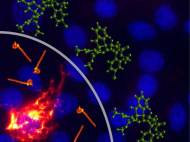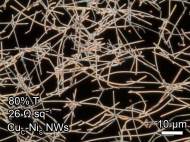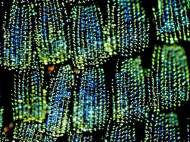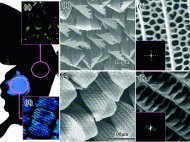Study leads to broad spectrum antivirals for deadly viruses
 Researchers at the Boston University School of Medicine (BUSM) found a new class of chemical compounds that have the potential to prevent replication of genetically diverse viruses. This could lead to the development of broad-spectrum antiviral drugs which can be used to treat a great deal of viruses, including highly pathogenic Ebola and Marburg viruses.
Researchers at the Boston University School of Medicine (BUSM) found a new class of chemical compounds that have the potential to prevent replication of genetically diverse viruses. This could lead to the development of broad-spectrum antiviral drugs which can be used to treat a great deal of viruses, including highly pathogenic Ebola and Marburg viruses.
Viruses are small infectious agents that can infect all types of organisms, from animals and plants to bacteria. They can replicate only inside the living cells of an organism. The nonsegmented, negative sense (NNS) RNA viruses are a large and diverse group of enveloped viruses of medical significance. They cause common illnesses such as rabies, mumps and measles. However, this group also includes more recently identified pathogens, such as Nipah, Hendra and Ebola viruses.
It is estimated that this viral group is associated with mortality rates up to 90 percent following infection. In contrast to the many antibiotics that work against a wide range of bacteria, for many members of the NNS RNA viral group there are currently no highly effective or safe broad-spectrum drug treatments.
The researchers screened thousands of diverse chemical probes that showed strong antiviral activity against multiple NNS RNA virus family members. They identified that indoline alkaloids – a new class of plant-derived compounds – effectively prevent genetically diverse viruses from replicating, including Ebola.
These probes do not interact with viruses directly. Namely, although different members of NNS RNA virus family encode different genes and have diverse strategies for entry into the host organism, they show high sequence similarity in the RNA-dependent RNA polymerase and are known to follow the same general mechanism for RNA synthesis. This polymerase is necessary in all steps of viral RNA synthesis. According to the researchers, identified compounds limited RNA production by the virus, and thus it is likely that they inhibit RNA-dependent RNA polymerase.
“Because the production of viral RNA is the first step in successful replication, it appears that we have uncovered an Achilles heel to halt virus replication. These compounds represent probes of a central virus function and a potential drug target for the development of effective broad-spectrum antivirals for a range of human pathogens”, said Claire Marie Filone, PhD, postdoctoral researcher at BUSM and the United States Army Medical Research Institute of Infectious Diseases (USAMRIID).
For more information, you can read the paper published in Chemistry & Biology: “Identification of a Broad-Spectrum Inhibitor of Viral RNA Synthesis: Validation of a Prototype Virus-Based Approach” [1.14MB PDF].









Leave your response!